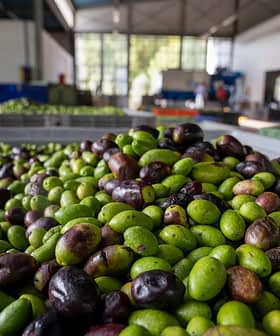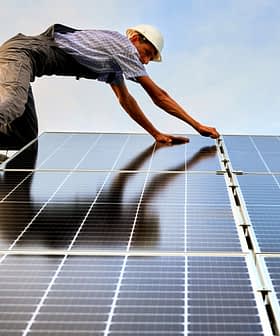World Failing to Meet Emissions Reductions Pledged in Paris Agreement
Five years ago in Paris, delegations from 191 countries pledged to reduce emissions by 45 percent, but the situation has only gotten worse.
The World Meteorological Organization warns that global pledges to reduce greenhouse gas emissions are insufficient to limit global warming, with temperatures expected to rise by at least 1 ºC over pre-industrial levels in the next five years. Despite the Paris Agreement’s goals of limiting temperature increases to 1.5 to 2 ºC, U.N. analysis indicates that current emission strategies will lead to a 16 percent increase in global emissions by 2030, far exceeding the target and necessitating immediate action.
Global pledges for reducing greenhouse gas emissions are not enough to curtail global warming, according to the World Meteorological Organization (WMO).
The United in Science 2021 report warned that each of the next five years will present temperatures at least 1 ºC higher than pre-industrial levels.
We need to build global solidarity. In the pandemic as in the climate emergency, no one is safe until everyone is safe.
Compared to the average temperatures of the period from 1850 to 1900, from 2022 onwards the world will see a temperature rise by 0.9 °C to 1.8 °C. By 2030, that increase could go up even further.
See Also:U.S., Europe Announce Plans to Dramatically Cut Methane Emissions“There is a 40 percent chance that the average temperature in one of the next five years will be at least 1.5 °C warmer than pre-industrial levels,” warned the report. “However, it is very unlikely that the five-year average temperature for 2021 to 2025 will pass the 1.5 °C thresholds.”
The projections are based on a wide array of sources, one of which is the greenhouse gas emissions data coming from the U.N. Environment Program (UNEP), which paints a quickly worsening global scenario.
UNEP has estimated that five years after the Paris Agreement the so-called emission gap is as large as ever. The emission gap is the difference between how much the scientists had asked for global emissions to be reduced by 2030 and where they actually are heading.
“Last year, we estimated that there was a 5.6 percent drop in emissions and since the lifetime of carbon dioxide is so long, this one-year anomaly in emissions doesn’t change the big picture,” Petteri Taalas, secretary-general of the WMO, said in reference to the effects of the Covid-19 pandemic in 2020.
“We saw some improvements in air quality,” he added. “We saw positive evolution there. But now we have returned more or less back to the 2019 emission levels.”
The Paris Agreement asks for countries to lay out national strategic plans aimed at limiting emissions and forecasting their future balance.
The signatory nations agreed to try to prevent temperatures from exceeding 2 ºC above pre-industrial levels, with a special effort on trying to keep them under 1.5 ºC. Of the 191 countries that have signed the agreement, only 113 have presented their national plans.
According to the WMO report, given the pledges and the emission strategies already rolled out or announced, global emissions are set to rise 16 percent by 2030, well above the 45 percent drop that U.N. scientists see as the only way to meet Paris Agreement expectations.
“We are not yet on track towards the Paris 1.5 to 2 degrees’ limit, although positive things have started to happen and the political interest to mitigate climate change is clearly growing,” Taalas added. “But to be successful in this effort, we have to start acting now. We cannot wait for decades to act, we have to start acting already in this decade.”
According to the U.N. analysis, a 16 percent rise might lead to a global temperature increase of up to 2.7 ºC, far exceeding the Paris Agreement target.
“A 16 percent increase is a huge cause for concern,” Patricia Espinosa, the U.N.‘s chief climate negotiator, told the BBC.
“It is in sharp contrast with the calls by science for rapid, sustained and large-scale emission reductions to prevent the most severe climate consequences and suffering, especially of the most vulnerable, throughout the world,” she added.
According to a World Resources Institute and Climate Analytics report cited by the BBC, Turkey, Saudi Arabia, India and China are responsible for 33 percent of all greenhouse gas emissions, but none of them have yet presented their own strategic plan. Other countries, such as Mexico, Brazil and Russia, have warned that their emissions will keep growing.
While many industrialized countries prepare for the COP26 international climate meeting to be held in Glasgow starting October 31, other nations are starting to analyze the costs both from activating their own strategic plans and from the consequences of global warming itself.
A report from the Kenyan thinktank Power Shift Africa warned African governments struggling to recover from the effects of the Covid-19 pandemic that “a narrow focus on an economic recovery that ignores climate change and the broader objectives of sustainable development will cost Africa more economic pain in the long run.”
According to Power Shift Africa, climate change should be put at the heart of the economic recovery plans throughout the continent.
“Driving a Green and Sustainable post-Covid-19 Recovery in Africa” acknowledges the ongoing efforts of a few countries, such as Nigeria, where five million off-grid home solar systems will be installed.
“The pandemic is a reset moment, to shift away from billions of investments in doomed fossil fuels,” Mohamed Adow, director of Power Shift Africa, told AFP. “Africa is blessed with sun and wind, it must be the bedrock of our recovery.”
According to Adow, wealthier countries should stick to their pledges and give climate-vulnerable nations the promised $100 billion, which is needed to cut emissions and offer new paths to development.
“We need to build global solidarity,” he said. “In the pandemic as in the climate emergency, no one is safe until everyone is safe.”
Share this article









